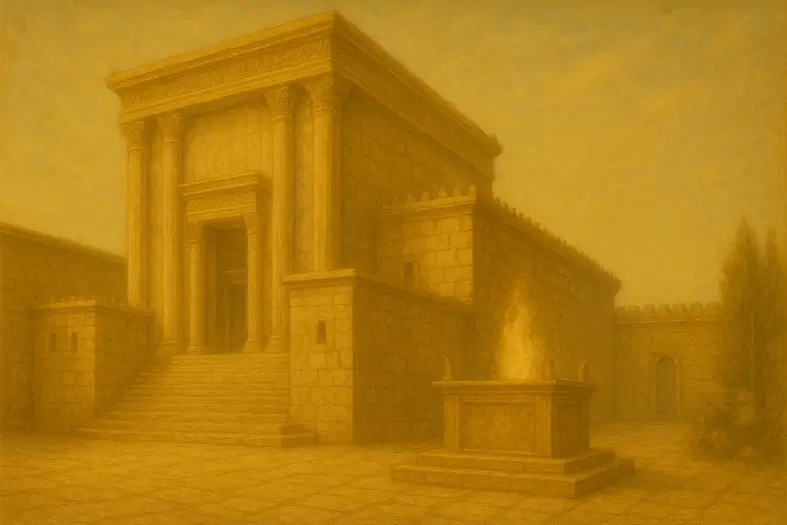


It is forbidden to build the altar with stones shaped or cut by iron tools.
The altar (mizbeach) must be built only from natural stones, not stones hewn by iron or other metal tools. The Torah explicitly forbids the use of iron, symbolically linked to instruments of war and death, for constructing the altar, which is an instrument of peace and atonement.
Rambam explains that the altar’s sanctity would be compromised by contact with iron. The Sages noted the contrast: iron shortens life, while the altar lengthens it by bringing atonement. Therefore, they must not be joined.
This mitzvah emphasizes that holiness must be preserved in every aspect of the Temple’s service, including the materials and methods of construction. It symbolizes the separation of violence and destruction from sanctity and peace.
Commentary & Classical Explanation:


Represents the concept of spiritual intentionality, purity, and sanctity—set apart for a higher purpose.
Concerns the Beit HaMikdash, korbanot (offerings), and priestly service.
Signifies awe and reverence toward Hashem—living with awareness of His greatness and presence.
Mitzvot that define and deepen the relationship between a person and their Creator. These include commandments involving belief, prayer, Shabbat, festivals, sacrifices, and personal holiness — expressions of devotion rooted in divine connection.

Dive into mitzvos, prayer, and Torah study—each section curated to help you learn, reflect, and live with intention. New insights are added regularly, creating an evolving space for spiritual growth.

Explore the 613 mitzvos and uncover the meaning behind each one. Discover practical ways to integrate them into your daily life with insights, sources, and guided reflection.

Learn the structure, depth, and spiritual intent behind Jewish prayer. Dive into morning blessings, Shema, Amidah, and more—with tools to enrich your daily connection.

Each week’s parsha offers timeless wisdom and modern relevance. Explore summaries, key themes, and mitzvah connections to deepen your understanding of the Torah cycle.